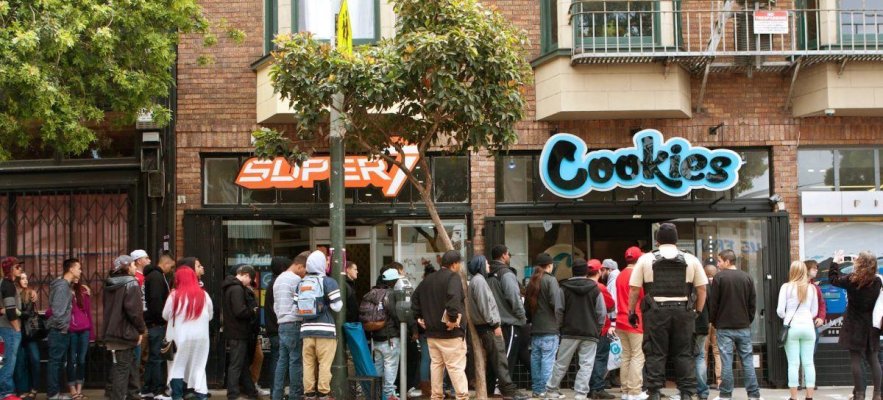On June 6, the San Francisco Board of Supervisors voted unanimously (with one member absent) to impose a four-and-a-half year moratorium on authorizing any fresh cannabis business permits city-wide.
Ahsha Safai, the supervisor, was the motivating factor behind the moratorium, expressing that the move was only going to be temporary. He remarked, "It's essentially just a pause, and eventually, we will be able to take a look at this again in a few years", as reported by The San Francisco Standard.
According to The San Francisco Standard, Safai's temporary ban on new pot stores could be a strategy to court Asian American communities, who have expressed opposition to cannabis, as he campaigns for the mayor's seat in San Francisco in 2024.
According to Safai, the primary motivation for the prohibition is the excessive supply of cannabis-based products and the underground trading that has been going on, as well as the hazards posed to public security due to the recent robberies. In May, Safai addressed the board of directors regarding these worries. "It should be made clear that there is no lack of marijuana retail stores, and many of them are struggling since there have been brazen break-ins, public safety issues, and an unregulated market that is not being properly managed," he declared.
The San Francisco Standard has reported that in the city, there are 32 medical cannabis dispensaries and 31 recreational dispensaries, with 100 applications in the process of being looked at. Furthermore, SFGATE has revealed that there are approximately nine dispensaries per 100,000 people in San Francisco, compared to the 2.6 in San Diego and 1.8 in Los Angeles. Additionally, it has been noted that cities such as Portland, Oregon have 34 dispensaries per 100,000 residents.
At the June 6th vote, Supervisor Dean Preston backed the 2027 sunset clause. "The initial concept was for a more lengthy prohibition," Preston remarked, as reported by SFGATE. "The amendments have gone a long way in creating a temporary moratorium, which was the original purpose."
The ban is slated to last until the end of 2027, when the board of supervisors will make a decision on whether to terminate or extend the moratorium. No impact will be made on existing cannabis businesses or applicants. The prohibition will become active 30 days after approval, which is set to occur in early July.
Johnny Delaplane, co-owner of Berner's on Haight, informed SFGATE that an increase in dispensaries will lead to greater competition and a decrease in success for existing cannabis business owners. Delaplane commented, "The legal cannabis market in San Francisco is limited. If it's split up between 70 retailers and eventually 140 retailers, many of them are bound to fail."
Brad Rowe, a lecturer of public policy at UCLA and adjunct professor at Pepperdine University, noted that while a cannabis shop ban would increase profits for dispensaries, it will likely come at a cost to consumers with higher product prices. "Restricting access builds value," he said, "but the downside is the people who will have to pay for it is the consumers."
Posh Green owner Reese Benton, among others, spoke concerning how this prohibition favors those who already possess stores in the city. "It's unjust," Benton stated. "It's incredibly difficult for someone in my position to get a store up and running."
Nina Parks, proprietor of Gift of Doja, is in the midst of the application process for equity. She believes that the ban will negatively affect other social equity applicants. "This legislation is keeping the door shut for people who are disadvantaged and that is not what the equity program should be doing," Parks declared.
Pasco, Washington recently lifted a ten-year ban on cannabis, while Amsterdam has imposed a ban on public smoking of the drug. In San Francisco as well as other states where recreational cannabis is legal, a surplus of product has been reported by the Associated Press. This is due to the lack of available dispensaries to offer flowers, edibles, and distillates.
Ahsha Safai, the supervisor, was the motivating factor behind the moratorium, expressing that the move was only going to be temporary. He remarked, "It's essentially just a pause, and eventually, we will be able to take a look at this again in a few years", as reported by The San Francisco Standard.
According to The San Francisco Standard, Safai's temporary ban on new pot stores could be a strategy to court Asian American communities, who have expressed opposition to cannabis, as he campaigns for the mayor's seat in San Francisco in 2024.
According to Safai, the primary motivation for the prohibition is the excessive supply of cannabis-based products and the underground trading that has been going on, as well as the hazards posed to public security due to the recent robberies. In May, Safai addressed the board of directors regarding these worries. "It should be made clear that there is no lack of marijuana retail stores, and many of them are struggling since there have been brazen break-ins, public safety issues, and an unregulated market that is not being properly managed," he declared.
The San Francisco Standard has reported that in the city, there are 32 medical cannabis dispensaries and 31 recreational dispensaries, with 100 applications in the process of being looked at. Furthermore, SFGATE has revealed that there are approximately nine dispensaries per 100,000 people in San Francisco, compared to the 2.6 in San Diego and 1.8 in Los Angeles. Additionally, it has been noted that cities such as Portland, Oregon have 34 dispensaries per 100,000 residents.
At the June 6th vote, Supervisor Dean Preston backed the 2027 sunset clause. "The initial concept was for a more lengthy prohibition," Preston remarked, as reported by SFGATE. "The amendments have gone a long way in creating a temporary moratorium, which was the original purpose."
The ban is slated to last until the end of 2027, when the board of supervisors will make a decision on whether to terminate or extend the moratorium. No impact will be made on existing cannabis businesses or applicants. The prohibition will become active 30 days after approval, which is set to occur in early July.
Johnny Delaplane, co-owner of Berner's on Haight, informed SFGATE that an increase in dispensaries will lead to greater competition and a decrease in success for existing cannabis business owners. Delaplane commented, "The legal cannabis market in San Francisco is limited. If it's split up between 70 retailers and eventually 140 retailers, many of them are bound to fail."
Brad Rowe, a lecturer of public policy at UCLA and adjunct professor at Pepperdine University, noted that while a cannabis shop ban would increase profits for dispensaries, it will likely come at a cost to consumers with higher product prices. "Restricting access builds value," he said, "but the downside is the people who will have to pay for it is the consumers."
Posh Green owner Reese Benton, among others, spoke concerning how this prohibition favors those who already possess stores in the city. "It's unjust," Benton stated. "It's incredibly difficult for someone in my position to get a store up and running."
Nina Parks, proprietor of Gift of Doja, is in the midst of the application process for equity. She believes that the ban will negatively affect other social equity applicants. "This legislation is keeping the door shut for people who are disadvantaged and that is not what the equity program should be doing," Parks declared.
Pasco, Washington recently lifted a ten-year ban on cannabis, while Amsterdam has imposed a ban on public smoking of the drug. In San Francisco as well as other states where recreational cannabis is legal, a surplus of product has been reported by the Associated Press. This is due to the lack of available dispensaries to offer flowers, edibles, and distillates.




